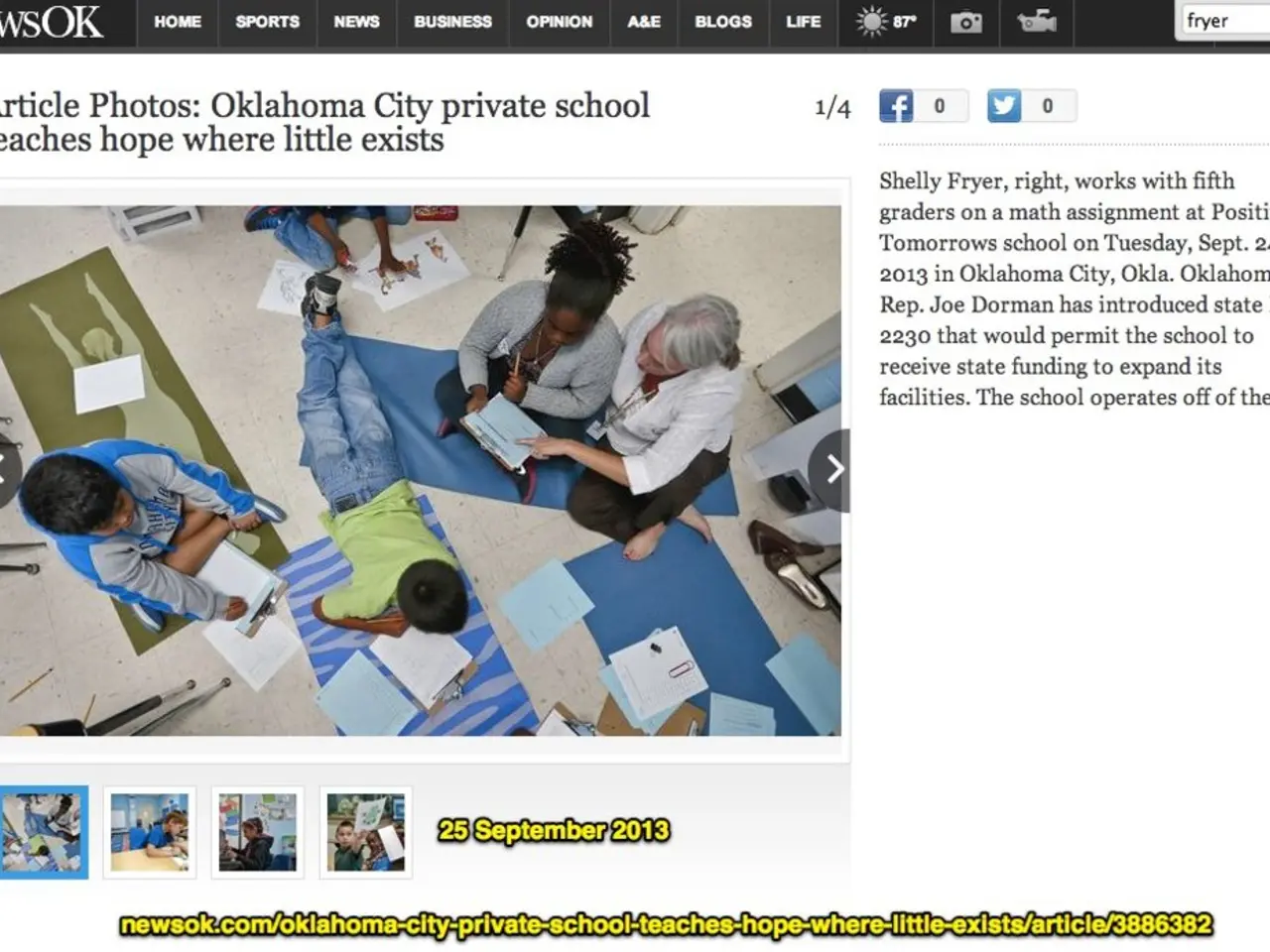School Social Media Accounts Endanger Student Privacy
In a recent study conducted by the American Educational Research Association, it was revealed that U.S. schools and districts share over 4.9 million posts with identifiable student images on public school social media accounts. This revelation has sparked concerns about the potential risks associated with sharing such personal information.
Joshua M. Rosenberg, an assistant professor of STEM education at the University of Tennessee, Knoxville, and co-author of the study, emphasizes the importance of this finding. Many educators and parents, he notes, are unaware of the potential harm of sharing student images and names on social media.
One of the main dangers identified by Rosenberg is the risk of individual students being targeted. This could range from custody disputes to stalking through school social media accounts. Furthermore, he points out three primary risks: companies and governments accessing the data, people seeking images of children, and potential identity theft.
Although Rosenberg does not elaborate on the risk of identity theft, he implies it as one of the three main dangers. He mentions that foreign and domestic governments access public social media data for purposes that may be harmful or unwanted. A notable example of potential misuse of such data is the use of public social media posts and other public internet data by companies to probabilistically identify suspects for crimes.
To mitigate these risks, school leaders are advised to make school and district accounts private to prevent large-scale data collection. They should avoid posting photos that readily identify students' faces and should never post students' full names, instead using only their first name or first name and last initial.
Parents are encouraged to read media release policies carefully, ask questions about how schools share content, and talk with their children's educators. It is also suggested that they review their media release policy to ensure it explicitly includes social media.
Rosenberg warns that parents and children may not want their images shared on school or district pages to end up in databases used by policing companies. Approximately half of the images found on child pedophilia websites come from public sources, highlighting the potential for manipulation and harmful use of these images.
The goal of the study is not to criticize educational leaders but to spark broader conversations and serve as a warning about the potential downsides of sharing such information in a publicly accessible way. It is crucial for everyone involved in education to be aware of these risks and take steps to protect students' privacy.






